WEIGHT LOSS PROTOCOL
The protocol discussed below is based upon Dr. Georgiou’s successful weight-loss protocol published in his first book Why Can’t I Lose Weight? Here is an excerpt from the book.
 When I completed my studies in Naturopathy and Clinical Nutrition, I found that clients were seeking my services for weight control. I began to work with the knowledge that I had picked up from studies on this subject, but to my disappointment, and that of my clients, we were not very successful initially.
When I completed my studies in Naturopathy and Clinical Nutrition, I found that clients were seeking my services for weight control. I began to work with the knowledge that I had picked up from studies on this subject, but to my disappointment, and that of my clients, we were not very successful initially.
I continued to hear from patients how they had spent a good many years losing and then gaining weight in true yo-yo style. There were many psychological (anxiety, depression, compulsive eating, anorexia and bulimia) as well as physical effects such as a loss of muscle tissue, including heart tissue, loss of bone minerals, gout or gallstones, hair loss, fibrosis and tissue scarring, high blood pressure when returning to a normal diet and shortened life-span.
I had a few sleepless nights mulling over the reasons why people were not losing weight with the reduced calorie diet that I had given them, given that it was also a healthy diet too. I began researching and realised that the secret to weight loss lies in balancing the metabolism, which involves a variety of steps. There are a number of factors that block the metabolism, which I have called the “Metabolism Blockers”. These include:
- Toxin levels in the body blocking metabolic pathways in cells
- The Thyroid – low functioning
- Food Intolerances – these can cause inflammatory chemicals that block metabolism
- Nutritional Deficiencies – nutrients are the fuel for all metabolic pathways
- Stress – can change the body’s pH to become more acidic with more inflammation
- Hypoglycaemia – low blood-sugar levels forcing you to eat sweets
- Insulin Resistance – a problem with insulin being insensitive leading to fat storage
- Candidiasis – fungal problem adding more toxins
I began by identifying these individual metabolism blockers in my clients, and removing them. To my surprise, my patients actually began to lose weight steadily. My initial successes included a 150kg (330lbs) gentleman who lost 50kg in 7 months, mainly after he gave up his cheese and tomato sandwiches and coffee, as he was intolerant to dairy, wheat and caffeine. Another 120kg lady who had never been able to lose weight in her life, even though she was on a perpetual diet, had lost 30kg in 5 months, and was continuing to lose weight steadily. We had also removed her food intolerances and balanced her sub-clinical hypothyroidism. No doubt these clients became walking adverts for my clinical practice, and it was not long before I was inundated with people wanting to lose weight.
It was then that I decided to write a book entitled Why Can’t I Lose Weight which I published last year specifically to be sold over the Internet. I will summarise some of this material, as I feel from my experience that it is a topic that tends to be taken lightly by the majority of therapists, but when you delve into it, is quite a scientific topic that involves a lot of background knowledge in trying to unravel the mysteries of the metabolism.
WHY DIETS DON’T WORK
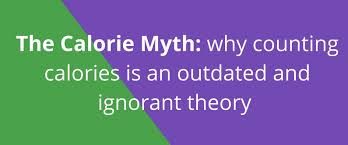 In 1930 two American doctors, Newburgh and Johnson, of the University of Michigan, suggested in one of their papers “obesity results from a diet too high in calories, rather than any metabolic deficiency.” This theory is called the “Calorie Theory”. Modern science now knows that the calorie theory has no standing and is truly illogical. It certainly does not explain how some people can eat 4,000 to 5,000 calories daily and not be obese in 4 to 5 years, while others can eat 800 calories daily and still put on weight. Also, how was it that prisoners in Nazi concentration camps managed to survive for almost 5 years on 700-800 calories a day, without withering and dying.
In 1930 two American doctors, Newburgh and Johnson, of the University of Michigan, suggested in one of their papers “obesity results from a diet too high in calories, rather than any metabolic deficiency.” This theory is called the “Calorie Theory”. Modern science now knows that the calorie theory has no standing and is truly illogical. It certainly does not explain how some people can eat 4,000 to 5,000 calories daily and not be obese in 4 to 5 years, while others can eat 800 calories daily and still put on weight. Also, how was it that prisoners in Nazi concentration camps managed to survive for almost 5 years on 700-800 calories a day, without withering and dying.
The calorie theory is based on the assumption that there is no loss of energy. It is purely mathematical, drawn directly from Lavoisier’s theory on the laws of thermodynamics. But it is not as simple as this, as many of you who have tried deiting will know. How many times have you tried to diet by reducing calories, only to find that you were putting on weight, or had stabilized after a few weeks? Certainly something funny is happening here, and this certainly cannot be explained by the calorie theory, which is now part of the syllabus of most Western medical schools, and appears to have taken root there. This theory has helped to create a new and growing profession – the dieticians, but unfortunately, to their disappointment and that of their patients, they are finding that they are failing miserably.
It is common knowledge that most of the weight loss programmes that involve calorie reduction are doomed to failure. Many research studies show that about 90% of all weight-loss clients return to their original weight after about six months, and this is confirmed daily by my patients.
DO FAT PEOPLE EAT MORE CALORIES?
 Interestingly, research studies in Western countries have shown that fat and obese people do not necessarily eat many calories daily. Statistics show the following:
Interestingly, research studies in Western countries have shown that fat and obese people do not necessarily eat many calories daily. Statistics show the following:
- 15% of obese people eat too much (2,800-4,000 calories)
- 35% of fat people eat normally (2,000-2,700 calories)
- 50% of fat people eat little (800-1,500 calories).
So again we see that scientific studies show that there is no significant correlation between overweight and energy intake. It has also been shown that the body will adapt to the low calorie intake by going into “survival mode”, by conserving energy in order to maintain body weight. The less you eat, the harder your body tries to retain fat. Experiments have shown that animals eating one meal a day become obese, while those receiving 5-6 meals spread throughout the day kept to an optimum.
In fact, low-calorie, commercial diets stimulate the body to accumulate fat. First, your body increases the quantity and activity of an enzyme called lipoprotein lipase, the main enzyme it uses to collect and store fat. Second, it slows your basal metabolic rate, further reducing your ability to burn fat. These two defence mechanisms continue for weeks after you stop the diet, in the meantime it is grabbing and replacing every molecule of fat that it can find!
HOW TOXINS CAN INHIBIT WEIGHT LOSS!
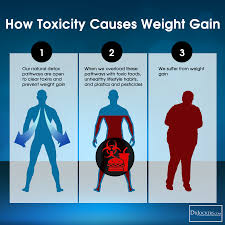 Most of the people that come to me for weight loss also suffer from other ailments. If they do not have a diagnosable disease, they usually suffer from tiredness, lethargy, a `heavy’ feeling, digestive problems, bowel distension, headaches, muscle aches, poor concentration and memory, insomnia and many other symptoms too numerous to list.
Most of the people that come to me for weight loss also suffer from other ailments. If they do not have a diagnosable disease, they usually suffer from tiredness, lethargy, a `heavy’ feeling, digestive problems, bowel distension, headaches, muscle aches, poor concentration and memory, insomnia and many other symptoms too numerous to list.
It never ceases to amaze me that most of these symptoms, if not all, can disappear in less than 15 days! After 15 days of detoxifying on an alkaline diet, patients report high energy levels, clear and glowing skin with a brilliance that is obvious (I always say to myself that I should take a before-detox and after-detox photo), weight loss of several pounds, which is an excellent motivating factor to continue with the weight loss programme, clear-headedness, higher thresholds for stress and tension, reduced cellulite, good body tone and a great feeling of being relaxed.
All these toxins that I have mentioned here eventually move into the adipose (fat) cells and your adipose tissues. These adipocytes (fatty cells and tissues) are different from ordinary cells. These cells are mostly made up of fatty wastes. As the stored-up sediment and sludge accumulate, they actually push out the movable cytoplasm and glue themselves to the adipocytes. More and more sludge builds up, and weight accumulates. As these adipocytes swell and proliferate, the amount of adipose tissue increases, ultimately erupting in ever-expanding obesity. To control this obesity and reverse the process, it is absolutely crucial that you remove these wastes from your adipocytes. This will help to `slim down’ your cells, and subsequently your body too. How do we do this? Simply, by staying with fresh fruit, vegetables (salads, steamed vegetables or soups), fruit and veg juices and herbal teas for 15 days. Perhaps after Christmas (when we all need to detoxify), I will talk about detoxifying in a lot more detail.

THE IMPORTANCE OF THE THYROID TO WEIGHT LOSS
You cannot lose weight if your thyroid gland is under active – period! I have many clients who upon mentioning the thyroid during a consultation, say, “Oh! I have had my thyroid tested and it was just fine.” Then I explain the following:
One must understand that the blood and urine tests that M.D.’s normally run looking for pathology or disease. They have certain `pathological parameters’ that cover about 5% of the population. If you fall into these parameters then you are said to be ill, or suffering from some pathology of some organ system or other. This is clear-cut. However, if you do not fall into the pathological parameters, does this mean that you are automatically at the other end of the health continuum, which is Optimum Health? “Certainly not,” would be my answer! There is also a huge gray area in between that means that the thyroid has left the continuum of perfect health, and is gradually moving towards pathology, it just has not got there.
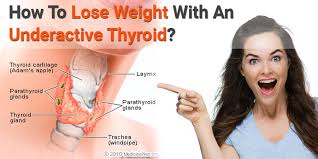 The thyroid may be just a tiny gland around the Adam’s Apple of the throat, but it stimulates oxidative metabolism, thereby increasing the oxygen consumption of each cell. As Dr. Barne’s, one of the pioneers in thyroid research for over 50 years, said, “Cellular health depends on three factors, a steady supply of nutrients, oxygen and thyroid hormones.” Thyroid hormones also stimulate protein synthesis, that is, the build-up of protein from amino acids.
The thyroid may be just a tiny gland around the Adam’s Apple of the throat, but it stimulates oxidative metabolism, thereby increasing the oxygen consumption of each cell. As Dr. Barne’s, one of the pioneers in thyroid research for over 50 years, said, “Cellular health depends on three factors, a steady supply of nutrients, oxygen and thyroid hormones.” Thyroid hormones also stimulate protein synthesis, that is, the build-up of protein from amino acids.
Protein is necessary for replacing worn-out blood cells and for the manufacture of enzymes, which as we have already seen, moderate the speed at which biochemical reactions take place within body cells. The less enzymes due to thyroid malfunctioning, the slower will be the chemical reactions, including the burning up of fat. Crucial to weight loss! Thyroid hormone also potentates the effect of other body hormones such as adrenaline, is necessary for the secretion of sex-activating hormones such as the gonadotropins of the pituitary gland and is, in large part, responsible for controlling the rate of absorption of nutrients in the gastrointestinal tract.
So, the little thyroid gland basically controls the metabolism of all the cells of the body, this is why I have called it `The Metabolism Master Gland.’ All the biochemical activity of the cells slow down in cases of hypothyroidism, which means that it is extremely difficult to lose weight.
Also, there is a characteristic accumulation of a mucin-like substance called hyaluronic acid, which binds water. The most frequent complaint of such patients is that they accumulate fluid around the eyes, hands, ankles and feet. Such people could be carrying anything between 2-5 kg of fluid, a lot of unnecessary weight.
 There is a simple home test that was developed by Dr. Broda Barnes which is called the Barne’s Basal Temperature Test (BBTT). Dr. Barnes in August 1942, reported in The Journal of the American Medical Association on a large study with one thousand college students whose temperatures were taken and showed that this test correlated well with thyroid functioning.
There is a simple home test that was developed by Dr. Broda Barnes which is called the Barne’s Basal Temperature Test (BBTT). Dr. Barnes in August 1942, reported in The Journal of the American Medical Association on a large study with one thousand college students whose temperatures were taken and showed that this test correlated well with thyroid functioning.
What Dr. Barnes found was that the normal and temperature using a mercury clinical thermometer left for exactly 10 minutes in the range of 97.8 to 98.2 degrees Fahrenheit. A temperature BELOW 97.8 degrees centigrade) indicated hypothyroidism or under functioning thyroid. If it was above 98.2 this indicated over functioning or hyperthyroidism. He found as he began treating these patients with thyroid therapy, their temperatures began to rise. I will not go into the details of the BBTT here. The only thing that I will add is it is possible to kick-start the thyroid by feeding it with L-Tyrosine and Organic Iodine. I have managed to reverse sub-clinical hypothyroidism using just these two natural substances, as I explain in my book.
FOOD INTOLERANCES – A CURSE IN DISGUISE
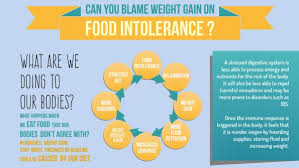 When I first began seeing patients for weight loss a few years ago, one of my first clients was a large man weighing 150 kg or 330 ibs. He had tried on numerous occasions to lose weight but all attempts had failed and he was truly frustrated and decided not to try again. Recently, however, he had a somewhat embarrassing health problem that led him to my doorstep. As he did not have any other major health problems, I began him on the detoxification programme and in 15 days he lost a staggering 10 kg or 22 lbs! We were both well pleased with ourselves, so I put him on the 1,500 calorie balanced diet. Over the next 3 months he lost only 3 kg or 6 lbs. I began to wonder what was going wrong after the initial spurt.
When I first began seeing patients for weight loss a few years ago, one of my first clients was a large man weighing 150 kg or 330 ibs. He had tried on numerous occasions to lose weight but all attempts had failed and he was truly frustrated and decided not to try again. Recently, however, he had a somewhat embarrassing health problem that led him to my doorstep. As he did not have any other major health problems, I began him on the detoxification programme and in 15 days he lost a staggering 10 kg or 22 lbs! We were both well pleased with ourselves, so I put him on the 1,500 calorie balanced diet. Over the next 3 months he lost only 3 kg or 6 lbs. I began to wonder what was going wrong after the initial spurt.
As I had been testing people for food intolerances using the VEGA Bio-Dermal Screening equipment that I have installed in my office, I decided to call him in and test him for a wide variety of foods. We found that he was reacting to three different foods – wheat, coffee and tomatoes. These foods had been his staples for many years as he was a sailor spending months on the high seas eating sandwiches and drinking plenty of coffee. I suggested that he cut these out of his diet all together and see what happens. In the next month he lost 8 kg and in the month after another 8 kg. He continued to lose weight so that in a period of 7 months he had lost 48 kg or 105 lbs. This all began to happen AFTER we diagnosed the food intolerances, and not before.
One of the problems related to weight loss is that food intolerances can reduce the metabolic rate for up to 72 hours after eating the food allergen – the quantity is really insignificant. This is why it is literally impossible to lose weight while eating food allergens.
NUTRITIONAL DEFICIENCIES – THE METABOLISM CRUSHER!
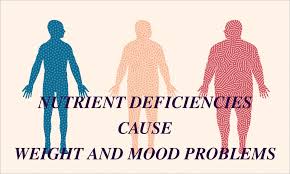 In order to optimise your metabolic rate, so that you may lose weight more efficiently, you must provide yourself with all the basic ingredients that it requires to function properly. The basic ingredients that it requires are the nutrients that we get, or should get, from our foods. These contain the vitamins, minerals, trace elements, amino acids, fatty acids and others that are all used by the body to produce the various enzymes, the hormones (including the thyroid hormones) as well as every other cell, tissue, muscle, bone and chemical that the body produces, not to mention its vital energy source.
In order to optimise your metabolic rate, so that you may lose weight more efficiently, you must provide yourself with all the basic ingredients that it requires to function properly. The basic ingredients that it requires are the nutrients that we get, or should get, from our foods. These contain the vitamins, minerals, trace elements, amino acids, fatty acids and others that are all used by the body to produce the various enzymes, the hormones (including the thyroid hormones) as well as every other cell, tissue, muscle, bone and chemical that the body produces, not to mention its vital energy source.
Without these fundamental building blocks the body will compensate by making metabolic changes on the one hand, with sub-optimal functioning on the other. This is why I have called these nutritional deficiencies as metabolism crushers – any deficiency in these crucial building blocks and the metabolism can be crushed. It is therefore important to determine what specific deficiencies you have, and what you can do to supplement in order to optimise the efficiency of your metabolism, and thereby lose weight quickly and efficiently.
Many people, including doctors, believe that if we eat a variety of everything, then we should not have any nutrient deficiencies. Research that has been done worldwide has shown that this is simply not the case. American studies have shown that one in three households show diets that are deficient in calcium and vitamin B6, one in every four households show deficiencies in magnesium, one in every five are deficient in iron and vitamin A, and nine out of ten women have inadequate iron in their diet. Results that I have from over 1,000 patients in Cyprus show similar trends – these are Tissue Hair Mineral Analyses.
No doubt, the diet trends present in today’s society are partly responsible for these nutrient deficiencies. Low fat products are usually low in the fat soluble vitamins such as A, D, E and K. Intensive farming practices, domestication of animals and fish, agrochemical usage, food processing and packing, food preparation, poor digestion and absorption and stressful lifestyles are all important factors that have depleted us of crucial nutrients. Needless to say, many medications can also affect vitamin and mineral absorption. This is why I say to my patients that nutritional supplementation with a good multi is a necessary evil in today’s world – perhaps our grandparents did not need to supplement as they were eating organic produce from the soil.
METABOLIC TYPING – ONE MAN’S MEAT IS ANOTHER MANS’S POISON
 Many people feel that eating a vegetarian diet is ideal for everyone, and will benefit all of mankind. This is simply not true! The saying ‘One man’s meat is another man’s poison’ is absolutely correct.
Many people feel that eating a vegetarian diet is ideal for everyone, and will benefit all of mankind. This is simply not true! The saying ‘One man’s meat is another man’s poison’ is absolutely correct.
We cannot all eat the same foods – it really depends on our METABOLIC TYPE, which is based upon the research of Bill Wolcott – If you haven’t yet read the book, The Metabolic Typing Diet, I would strongly encourage you to do so as it reviews these topics extensively.
If you are already feeling good, eating should, at the very least, help to maintain your energy level. But if you feel worse in some way an hour or so after eating, such as:
- You still feel hungry even though you are physically full
- You develop a sweet craving
- Your energy level drops
- You feel hyper, nervous, angry or irritable
- You feel depressed
… then it might be due to an improper combination of proteins, fats and carbohydrates at your last meal. You might be eating the perfect foods for your metabolism, but having too much of one type of food in place of another can easily produce the symptoms listed above.
Everyone Has Their Own Unique Metabolic Type
Many people come to my office eating very high-quality nutritious foods and are still quite sick. They haven’t touched sugar or junk food in ages and still suffer with many health problems. There are a number of reasons for this, but one of the major physical ones is related to the fact that they are not eating appropriate foods for their metabolic type. Determine your own Metabolic Typing and obtain a 40-page report based on your own needs.
Simple Fuel Analogy
Just as food is fuel for our bodies, petrol is food for our cars. Imagine for a moment that you have pulled into an exclusive petrol station that has secured the highest quality fuel from one of the world’s leading refineries … fuel that has been screened carefully and shown to be free of anything that would possibly harm your car’s engine.
It would seem reasonable to believe that your car is going to thrive on that high-quality fuel once you put it in your tank. But what if you were driving a diesel-powered vehicle? If that were the case, in a few minutes your car would stop running, and you would have a very expensive repair job ahead of you.
The fact that the car stopped running does not imply that the gas wasn’t any good or that your car was defective. It was simply the wrong type of fuel for your car.
Like your car, your body was designed for certain correct types of fuel … that is, a certain correct blend of the right food types. The further you deviate from this ideal, the more health problems are likely. That is why some of the sickest people I see in my practice are those who are “designed” to be eating high-proteins foods but have decided to be vegetarians. Conversely, carb types who choose to eat high amounts of meats also don’t do very well.
Different Metabolic Types There are three types of Metabolic Types:
1. PROTEIN TYPE
2. CARBOHYDRATE TYPE
3. MIXED TYPE
Protein types do better on low-carbohydrate, high-protein and high-fat diets. A typical ratio might be 40 percent protein and 30 percent each of fats and carbohydrates, but the amounts could easily shift to 50 percent fats and as little as 10 percent carbohydrates depending on individual genetic requirements.
Carb types normally feel best when the majority of their food is carbohydrate. However, just as we only have one word for snow while the Eskimos have many more, we only have one word for carbs while there are actually different types. There is a major difference between vegetables and grains and yet they are both referenced as “carbs.”
So if you are a Carb Metabolic Type you will require about 60 percent of your food as carbs, 25 percent protein and 15 percent fat, but this type may need as little as 10 percent fat and as high as 80 percent carbs in exceptional times. If you followed an Atkins Diet you might improve initially but eventually your system would break down because it required far more carbohydrate.
Once a person attains a normal weight and does not struggle with other insulin related disorders, it is actually possible to consume some grains and remain perfectly healthy. Carb types actually can do quite well with grains, but remember this is likely to only be about 15 percent of the population at best.
 Don’t stress out about the percentages; they are only rough guidelines. Even if they needed to be precise, you wouldn’t take the time or make the effort to eat exact percentages of foods every single time you ate, especially for the rest of your life.
Don’t stress out about the percentages; they are only rough guidelines. Even if they needed to be precise, you wouldn’t take the time or make the effort to eat exact percentages of foods every single time you ate, especially for the rest of your life.
Additionally, your activity and stress levels will affect and alter the quantity of food, as well as the ratio of proteins, fats and carbohydrates, you need to feel your best.
Last, there is also a circadian rhythm to account for. Your biochemistry moves through various phases throughout the day. These rhythms involve your hormonal output, your acid/alkaline shifts, your waking/sleeping times and many other time-based variables. While some people will have a need for the same ratios of protein, fat and carbs at each meal, others will discover that they need very different ratios at the different meals in order to derive optimum energy, well being and performance
WEIGHT GAIN AND STRESS
 You are stressed out at work – things have not been going too well for you – the promotion that you were promised last year has been postponed due to economic pressures the company is facing. You are having problems paying for that new car that you know you should have waited a little while longer for. There is a little tension in the marriage, as your husband has just changed jobs and he is also under a lot of pressure adjusting to the new environment and people. You also have to contend with a 10 year-old son who has been termed a `slow-learner’ by the school counsellor. You are working hard to help him keep up, but this further adds to the tension.
You are stressed out at work – things have not been going too well for you – the promotion that you were promised last year has been postponed due to economic pressures the company is facing. You are having problems paying for that new car that you know you should have waited a little while longer for. There is a little tension in the marriage, as your husband has just changed jobs and he is also under a lot of pressure adjusting to the new environment and people. You also have to contend with a 10 year-old son who has been termed a `slow-learner’ by the school counsellor. You are working hard to help him keep up, but this further adds to the tension.
When you are working so hard trying to keep your head above water, juggling with the problems of life, don’t you need to give yourself some type of gratification? Yes, this is human nature, and many people when they are in this state of tension and despondency, will begin to eat. Eating will give them immediate gratification for their toil and trouble will make them feel better temporarily, but it does not actually solve any of their problems. On an emotional level it probably adds to their troubles as they begin to feel guilty for having broken their diet, and eaten something that they should not have.
Guilt is an active ingredient for depression and can weigh on one’s conscience, as well as leading to frustration and a state of learned helplessness. “There’s not a lot I can do about it at the moment, so at least let me enjoy a little something until things get better,” you hear your subconscious telling you. This sets up a vicious cycle of more eating, feeling bad, eating more to alleviate the bad feeling, only to find that you’ve entered the cycle again. Under stress, fat and obese people tend to eat beyond the point of satiety, to gratify the mouth even at the expense of straining the stomach.
Getting fat or being obese is usually a result of a problem, and the root of these problems is usually:
- Boredom
- Excess stress
- Lifestyle and peer pressure
- Poor self-image (unhappiness, depression)
- All of the above
If you believe this, and you have probably experienced this on many occasions, then you will understand and agree that STRESS can be another metabolism blocker. In my book I discuss in some depth the use of the Bach Flower Remedies to deal with this stress, as I strongly believe that these remedies are not only simple and effective, but are an uncelebrated miracle for stress control.
There are other factors such as reactive hypoglycaemia and Candidiasis that are important in weight control; these are a part of the revision of Dr. Georgiou’s book that will be available as a downloadable version on this site soon.
At the Da Vinci Holistic Health Centre we implement this protocol with very high success rates – we believe in making ‘walking adverts’ of our patients. Dr Georgiou is a clinical nutritionist, naturopath, herbalist, homeopath and has a Doctor in Naturopathic Medicine (N.D) from the University of America and a Doctor of Science in Alternative Medicine – D.Sc (AM).

Videos to watch:
Why Can’t I Lose Weight? – Part 1
Why Can’t I Lose Weight – Part 2
Why Can’t I Lose Weight – Part 3







